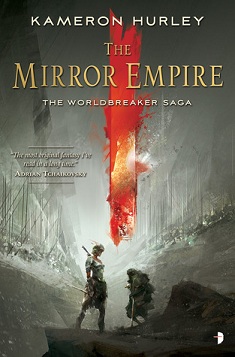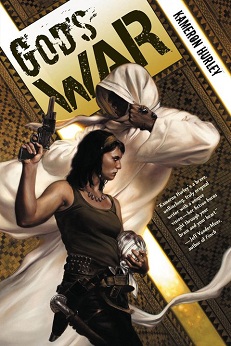
The Mirror Empire
Kameron Hurley
540 pages
published in 2014
Kameron Hurley’s debut novel Gods War had an impact many other writers would envy her for, only equalled by the buzz generated by Ann Leckie’s Ancillary Justice last year. It wasn’t just an accomplished debut novel, it also helped revitalise science fiction at a time when it started to grow a bit stale again. Expectations are therefore high for Hurley’s new novel, The Mirror Empire, the first in a new series and the first fantasy novel she has published. Would it be as good and inventive as her previous series, would she be as good at writing fantasy as science fiction?
Halfway through Mirror Empire I finally realised what it reminded me off: Steven Erikson’s Malazan series. Not so much in setting or plot, but rather in complexity and willingness of both authors to throw all sorts of interesting ideas into their novels, ideas you may not expect in what at first glance seems to be a standard epic fantasy series. Where they differ is that Hurley is much better at inclueing the reader about who all these people are and how everything fits together, where Erikson had a magnificent disdain for the reading, leaving them to sink or swim on their own. Hurley is … more forgiving but still requires you to pay attention. This is not a novel to read with your brain in standby.
